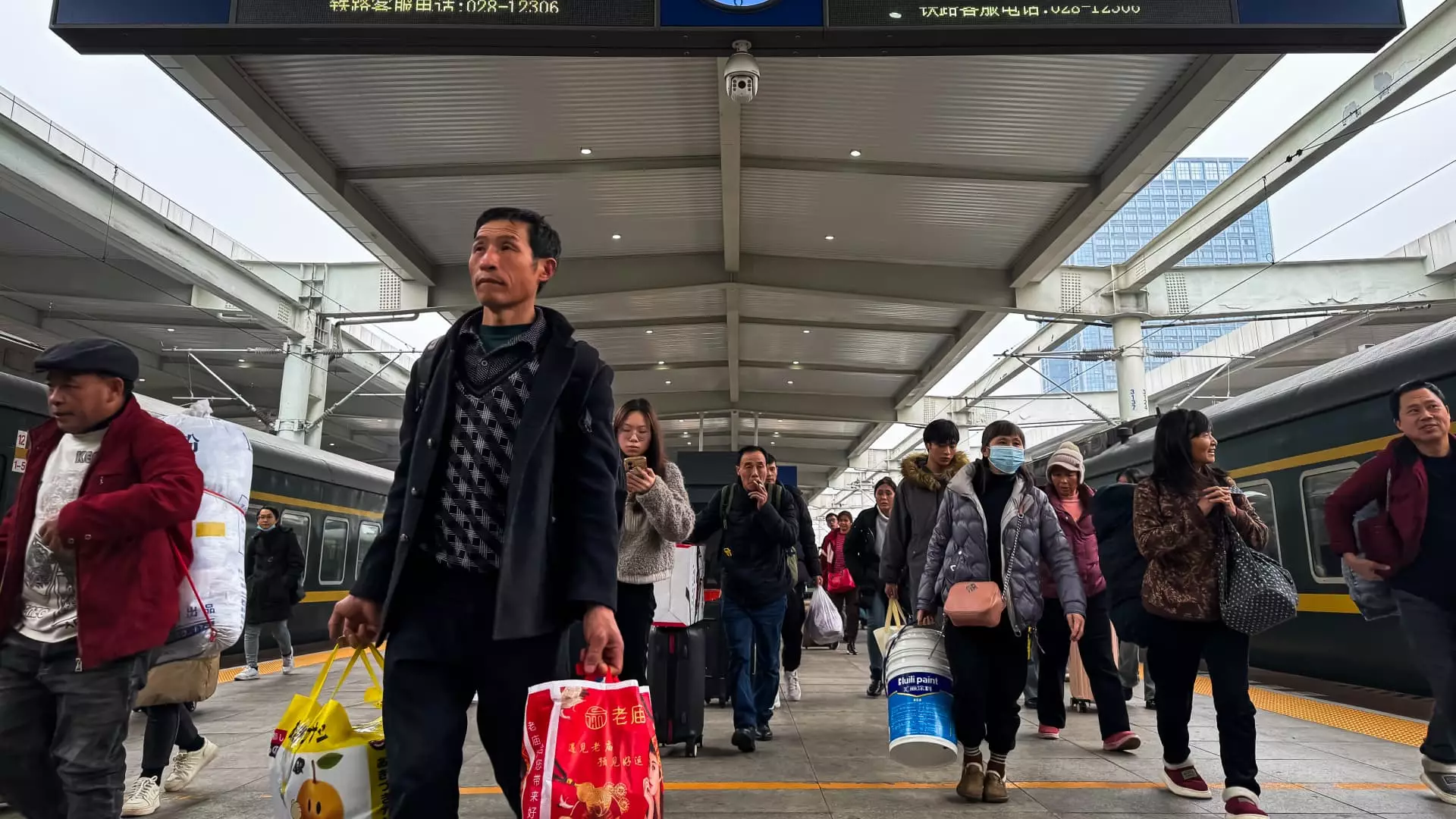China’s economy is currently grappling with a myriad of challenges that have left investors eagerly anticipating a turnaround that has yet to materialize. Despite the government’s promises of support, the anticipated fiscal stimulus has not yet had a meaningful impact. Policymakers initiated interest rate cuts and unveiled extensive stimulus measures in late September, yet concrete policy frameworks to address fiscal support are expected only in March at the annual parliamentary meeting. As the nation awaits its official GDP figures for 2024, concerns over both domestic demand and deflation loom large, hinting that the road ahead is fraught with obstacles.
According to a recent report from the BlackRock Investment Institute, China’s fiscal stimulus appears insufficient to counterbalance internal forces that impede growth. Such sentiments echo throughout the investment community, which maintains a cautious long-term outlook given the structural issues plaguing the Chinese economy. Investors, while slightly overweight in Chinese equities, remain on high alert, ready to recalibrate their strategies in response to evolving market conditions.
One of the most pressing issues enveloping China’s economy is the decline in domestic consumer demand. Reports indicate that consumer prices have only marginally increased by 0.5%, marking the slowest growth rate in over a decade. This stagnation in consumer spending raises red flags across various sectors, leading policymakers to express a commitment to revving up consumption levels. Beijing’s leadership aims for a conservative 2% inflation by 2025, focusing on the tech sector as a potential engine for growth.
Yin Yong, the mayor of Beijing, recently emphasized the importance of rejuvenating consumer spending and acknowledged the pressures facing key industries. While officials have indicated forthcoming fiscal measures, such as the issuance of ultra-long bonds, the effectiveness of these strategies to invigorate consumption remains to be seen. Property and retail sectors have felt the brunt of declining demand, prompting calls for a more integrated approach to stimulate the economy.
Real estate has historically played a pivotal role in China’s economic landscape, but recent events disclose a stark truth: the sector is at a crossroads. Following regulatory crackdowns on developers with substantial debts and the residual effects of the COVID-19 pandemic, the housing market has yet to stabilize. Central authorities have shifted their strategy, pledging to halt the sector’s decline, particularly in light of a high-level meeting convened by President Xi Jinping.
Despite recent measures, including construction completion for sold but unfinished apartments, analysts remain skeptical about the sector’s recovery trajectory. Notably, Jeremy Zook from Fitch Ratings asserts that the market hasn’t yet reached its nadir, and with real estate contributing substantially to economic output, any downturn carries significant consequences for overall growth. The realization that high inventory levels in smaller cities could prolong the crisis further complicates the outlook for real estate investments.
Government response strategies have largely diverged from Western approaches, particularly those employed in the U.S. during the COVID-19 pandemic. Instead of direct cash handouts to consumers, the Chinese government has opted for mechanisms such as trade-in subsidies and ultra-long bonds aimed at rejuvenating specific industries. These innovative approaches are designed to bolster consumption by encouraging the recycling of electronics and upgrading household appliances.
While the trade-in subsidies initiative has the potential to enhance sales volumes in the tech sector, doubts linger regarding its long-term effectiveness. Analysts like Nomura’s Chief China Economist Ting Lu highlight that the anticipated sales boost may falter within a year, limiting meaningful recovery in consumer demand. Thus, the question remains: will these policies yield a genuine and sustained turnaround?
Compounding China’s economic malaise is the tension with the United States, which has fostered a climate of protectionism. Export controls from Washington and an emphasis on domestic rather than foreign players in sectors deemed critical have created a ripple effect, making it increasingly challenging for foreign businesses to thrive in China. The implications of such a shift could be profound, impacting everything from investment decisions to overall economic growth.
The EU Chamber of Commerce has cautioned that these developments may lead to increased localization at the expense of efficiency. The alignment of security with development priorities reflects China’s broad strategy in response to these geopolitical pressures, which could reshape its interaction with foreign markets and investors in the near future.
In sum, China’s journey to rectify its economic trajectory is fraught with intricate challenges and sporadic opportunities. Policymakers must pivot towards comprehensive strategies to address fundamentals in consumer demand, housing stability, and international relations. The effectiveness of their forthcoming initiatives—especially those detailed in the March parliamentary meeting—will play a critical role in dictating the country’s economic fate moving forward. Investors and policymakers alike remain cautious, watching closely for further developments that may signal a genuine revival in China’s economic fortunes.

